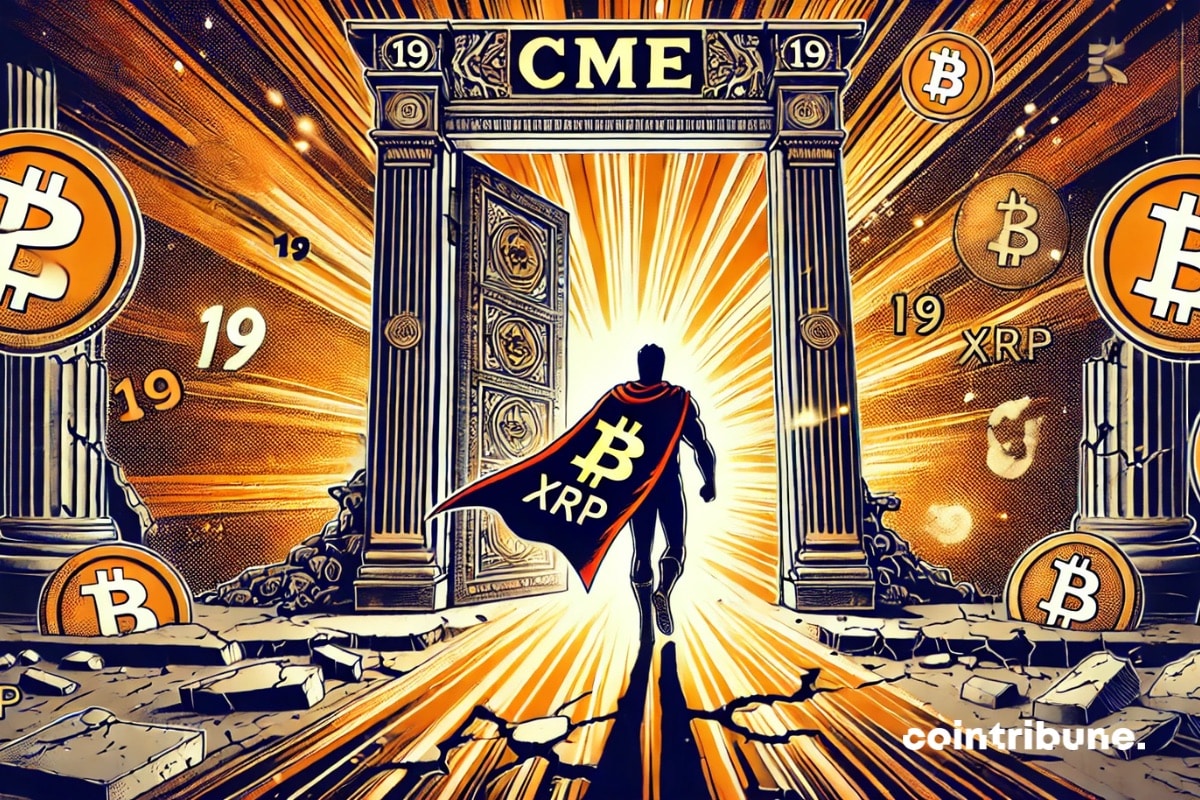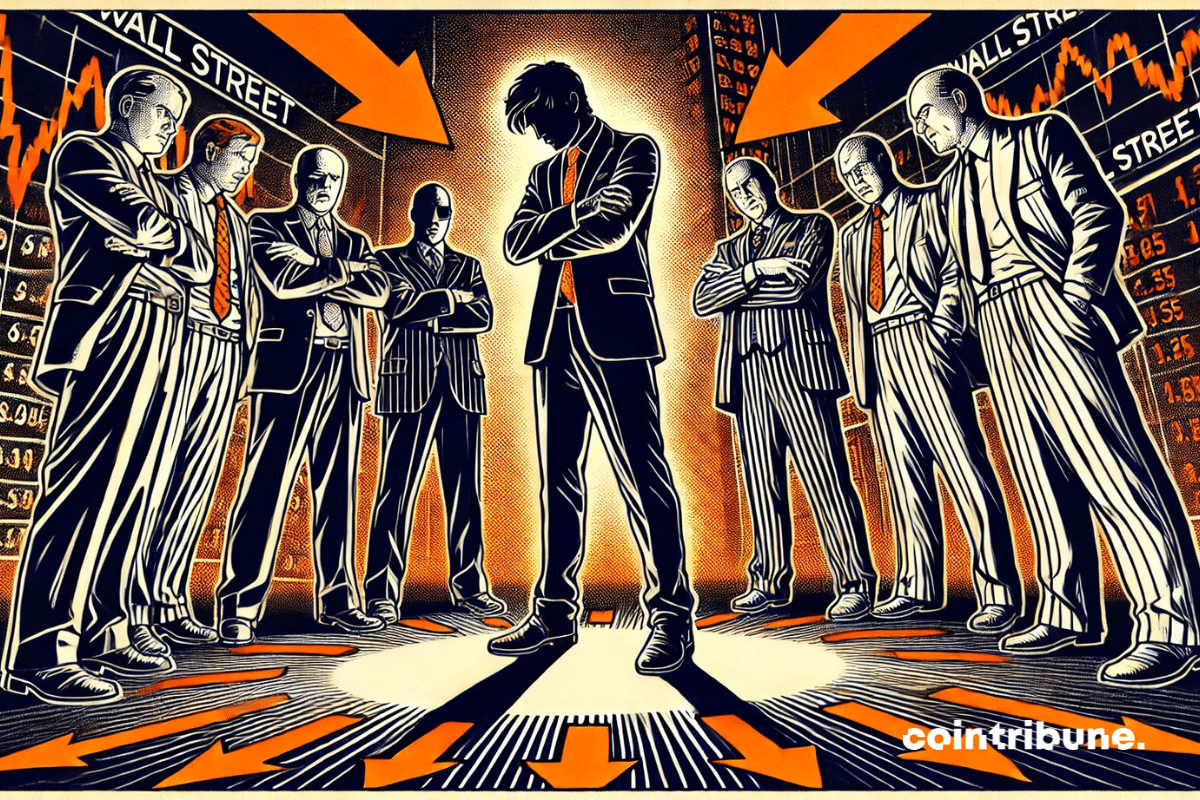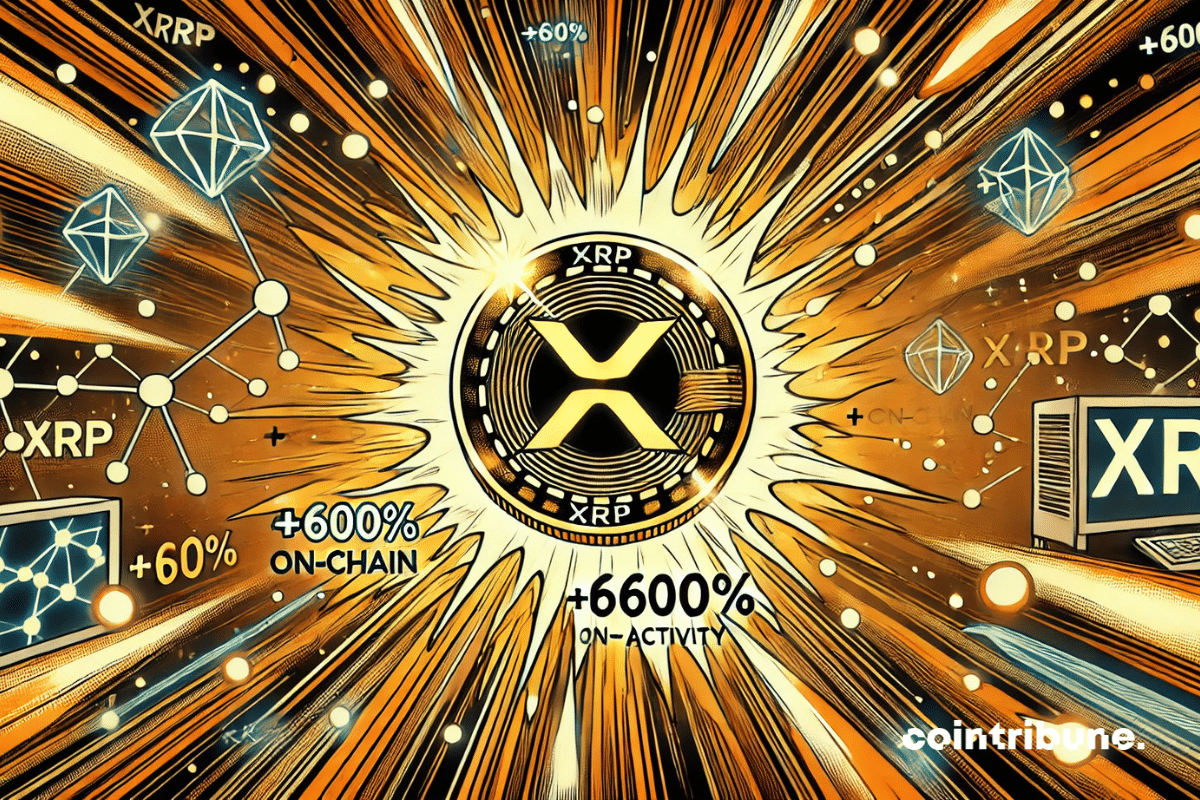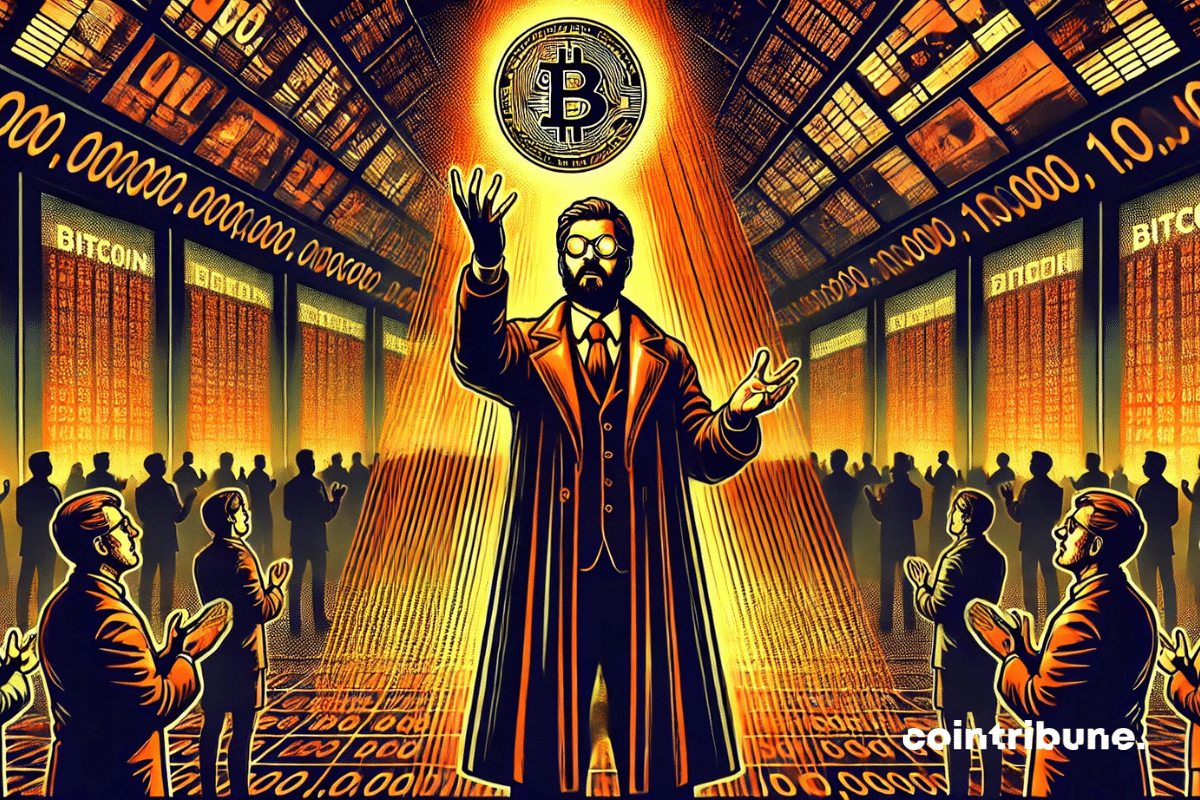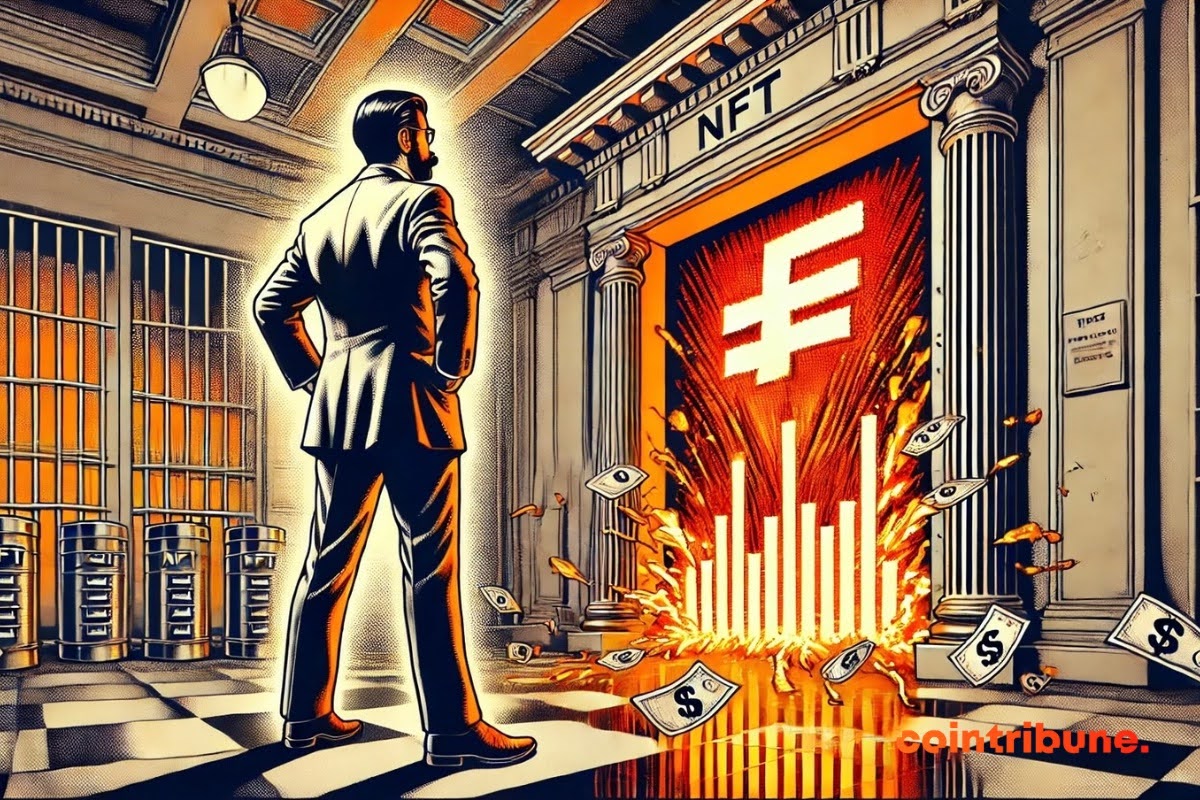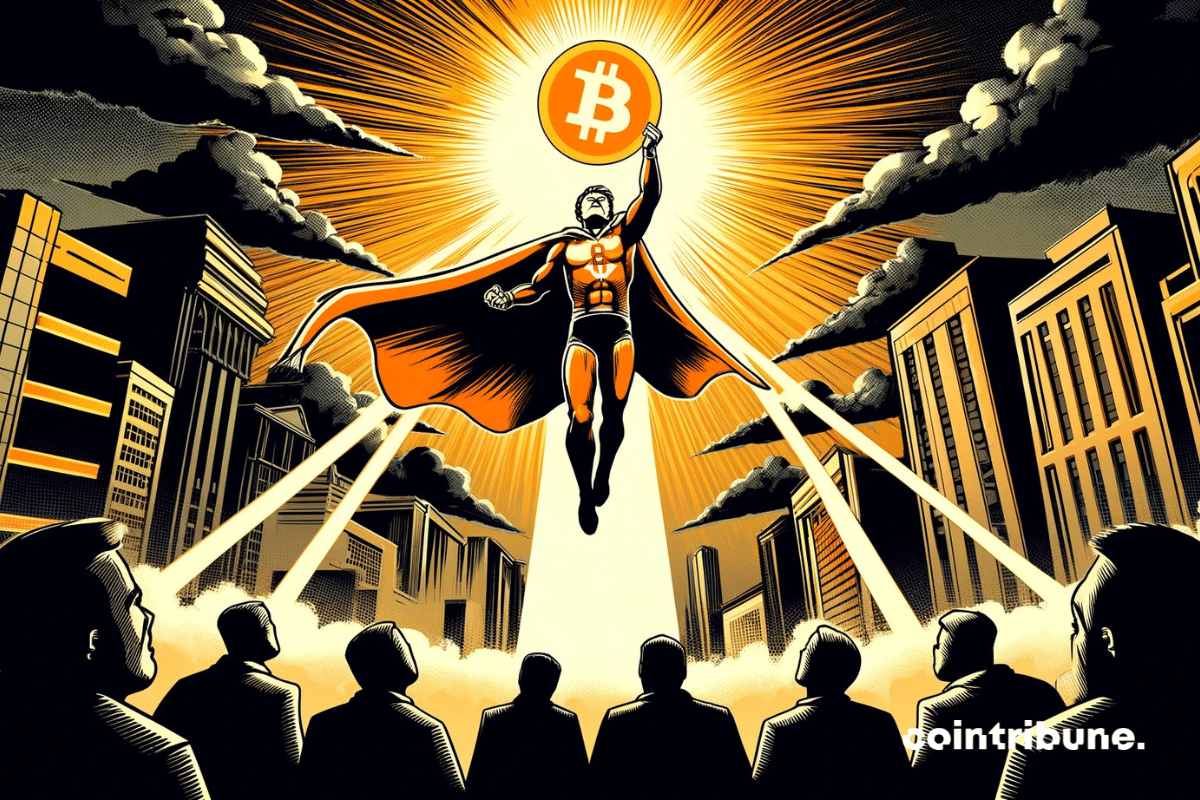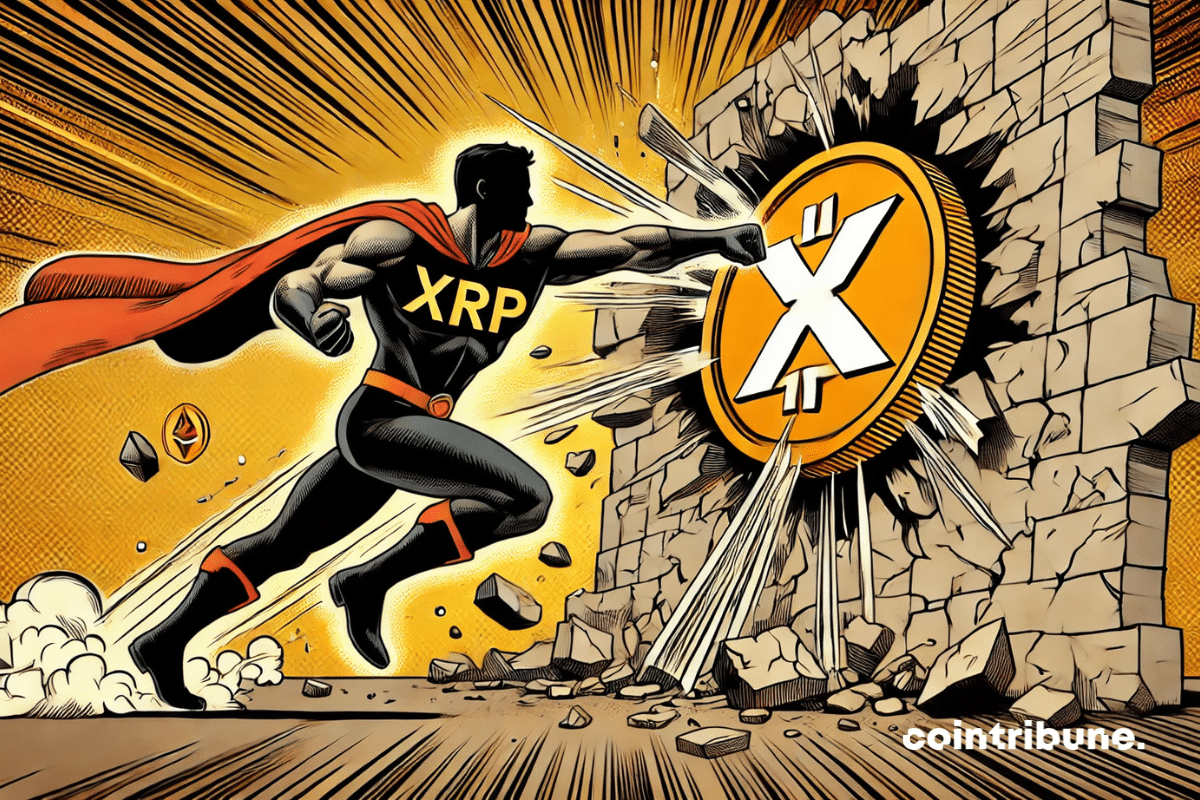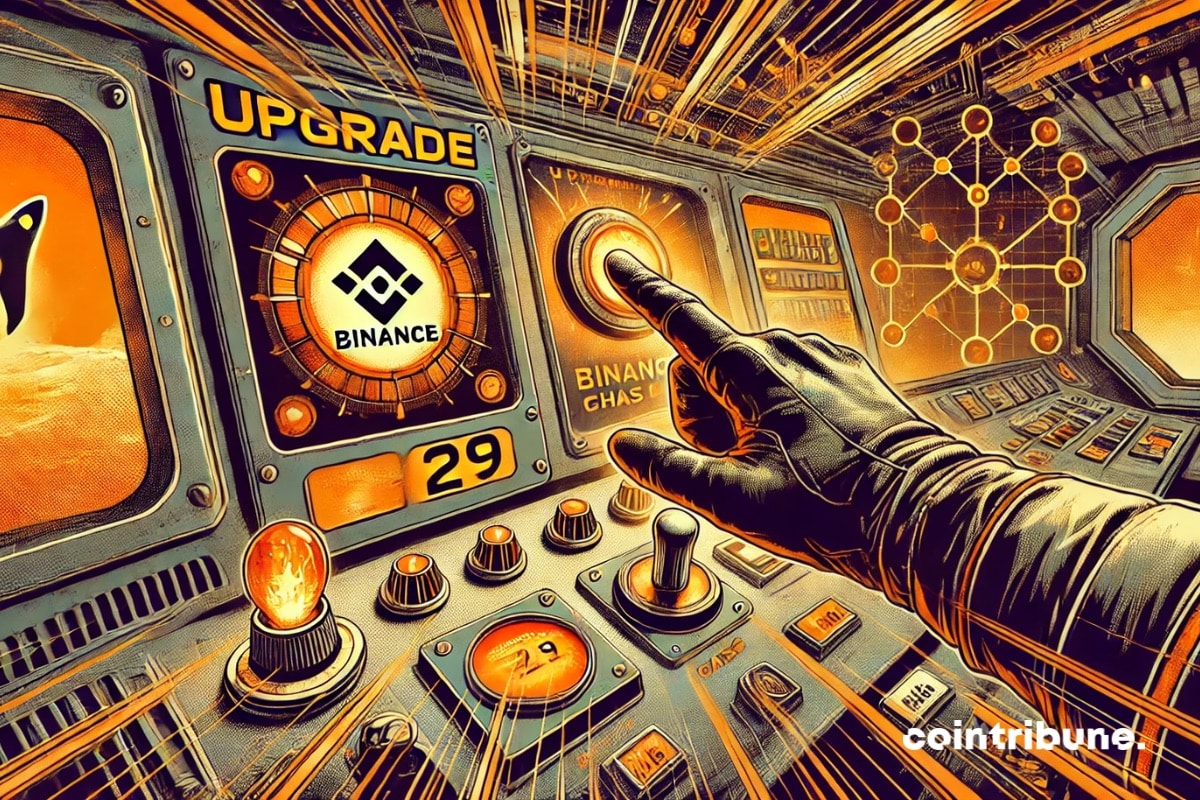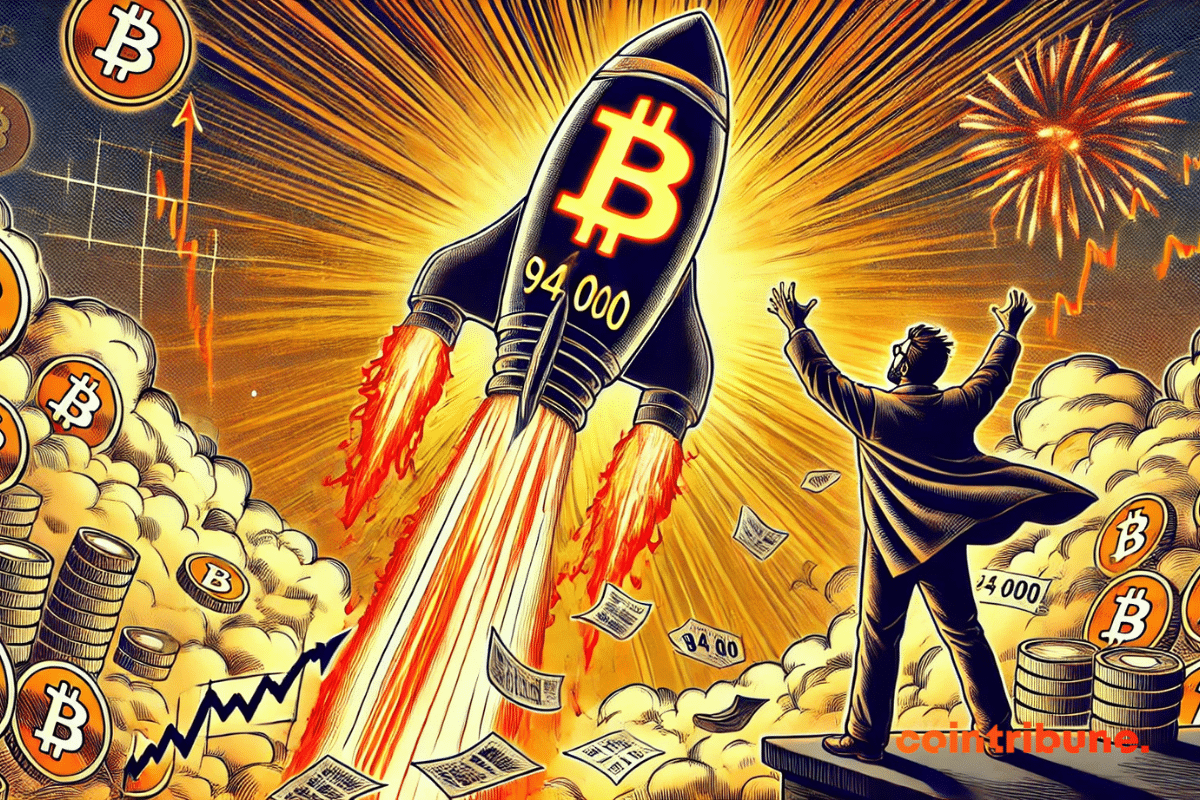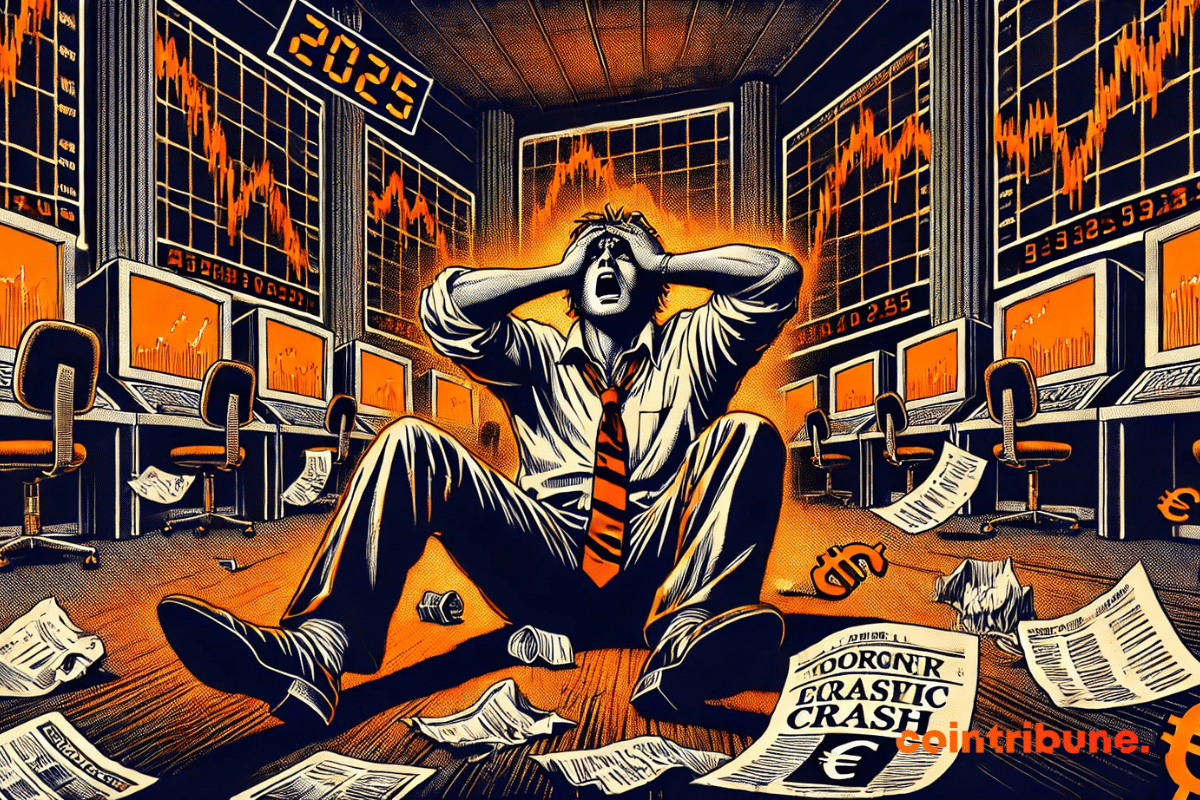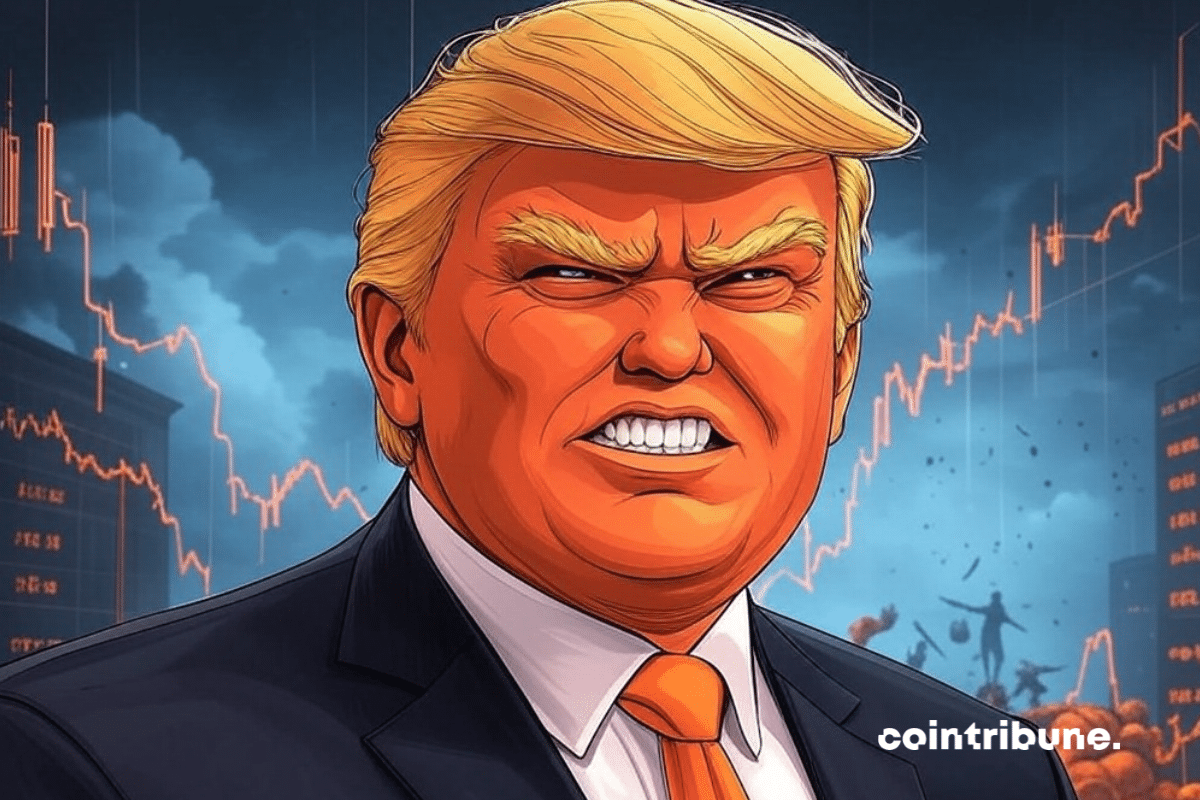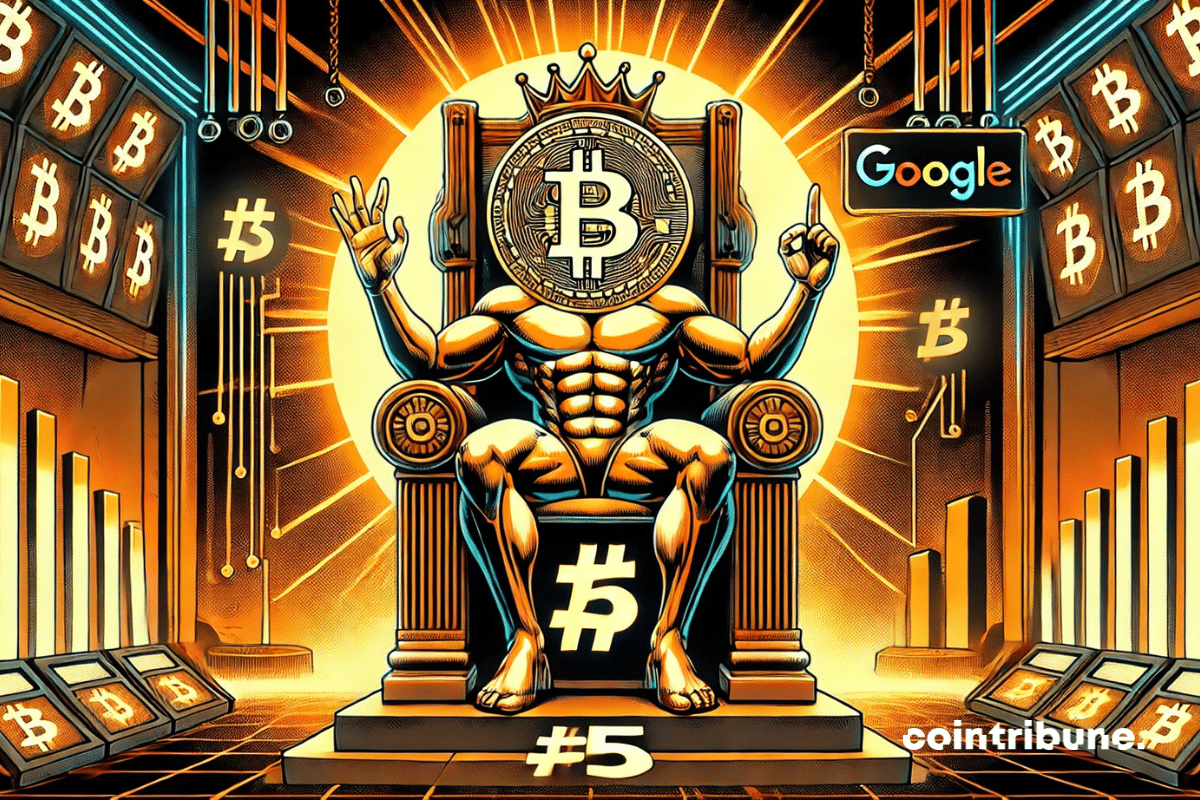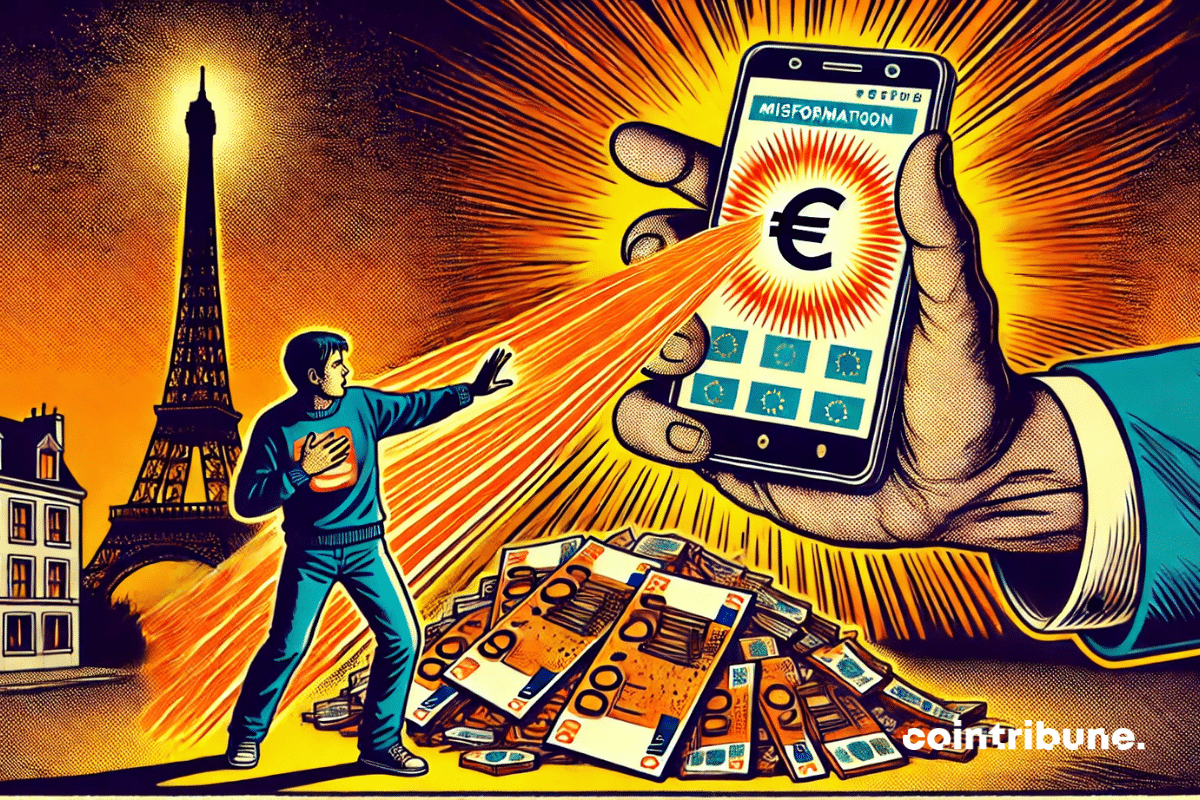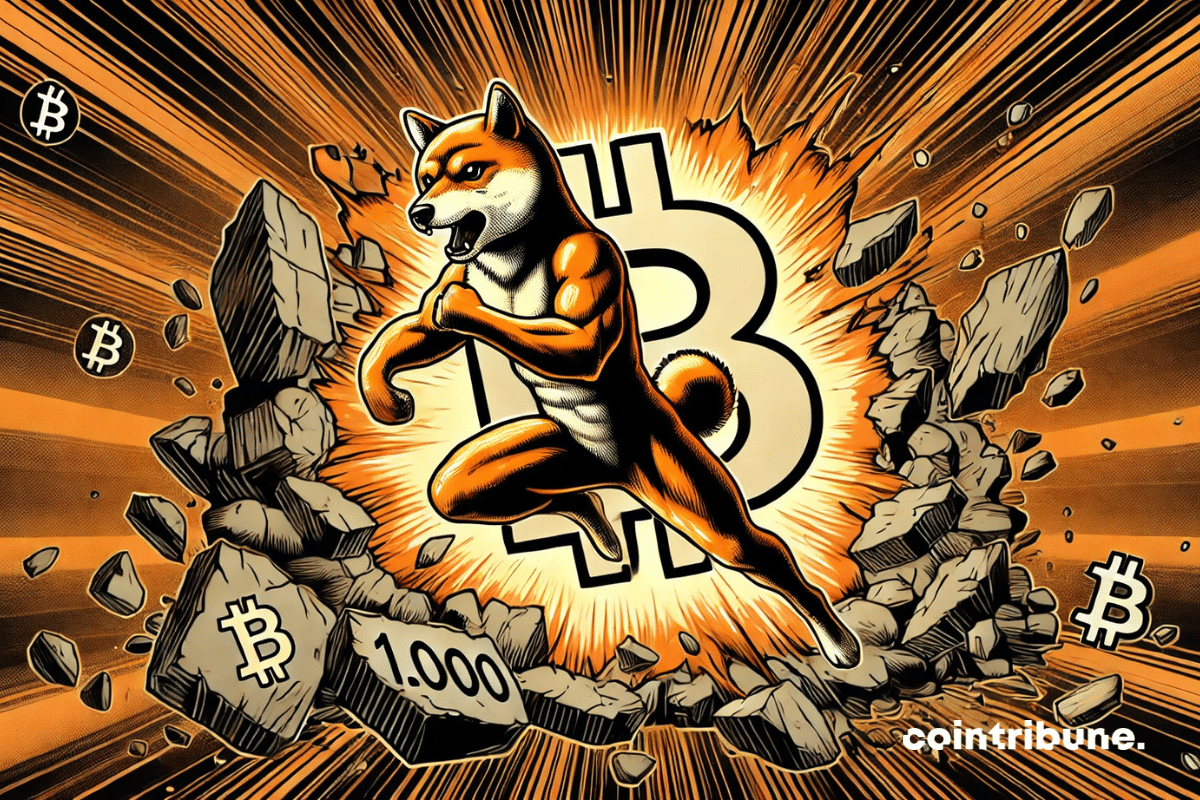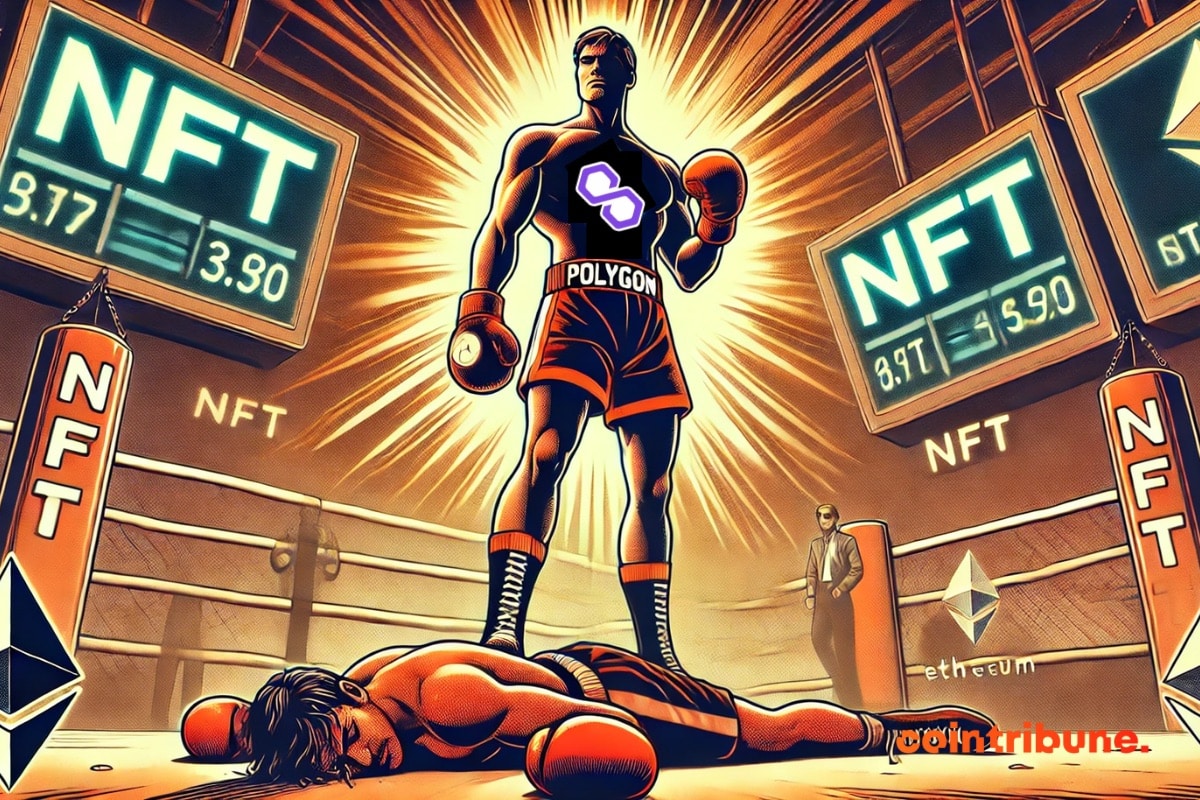Ripple enters a new era. The Chicago Mercantile Exchange (CME) Group, the global benchmark for derivative products, announces the launch of futures contracts on Ripple. A historic decision that propels XRP into the big leagues and could ignite its price in the weeks to come.
Cmc RSS
When Donald Trump challenges the bond market, it is not just a political confrontation: it is a systemic shock. The American president, driven by an interventionist economic vision, has triggered a wave of instability by upsetting the balances of interest rates and Treasury bonds. Opposing him is a relentless market that did not take long to react. This showdown, far from being anecdotal, reveals the fragilities of a strained economy and revives the debate on the reliability of traditional assets in times of uncertainty.
XRP, the crypto that was sleeping, is waking up from its digital coma with a jolt worthy of an earthquake, flirting with new heights and landing on traders' radar.
The history of bitcoin is marked by bold predictions, but Adam Back's, a key figure in the ecosystem, stands out for its blend of technical precision and historical mystery. As the creator of HashCash, mentioned in Satoshi Nakamoto's whitepaper, forecasts a bitcoin at 1 million dollars by 2025, one question looms: is this a cold analysis or a cryptographic legacy speaking through him?
The Fed turns a page in crypto regulation. By revoking two major directives imposed on banks since 2022 and 2023, the American institution reshuffles the cards of crypto supervision. Its new stance, embodied by letter SR 25-4, abandons the requirement for prior reporting in favor of an autonomous risk management approach. This is a discreet but strategic repositioning in a context where regulatory pressure is intensifying and the fault lines between financial innovation and institutional control are becoming increasingly visible.
Between Washington and the BRICS, India is performing a balancing act. Officially tethered to the dollar, it nonetheless allows favorable signals towards monetary alternatives to leak through. In a context of geopolitical reconfiguration where the American currency crystallizes tensions, New Delhi's ambivalent stance intrigues as much as it worries. Between overt loyalty and discreet strategies, India asserts itself as a key player in the global monetary showdown.
The traditional bond market remains complex, opaque, and reserved for an elite. Credefi is shaking up these norms by launching NFT Bonds, an innovative solution that makes investing in corporate bonds accessible, transparent, and profitable for everyone, thanks to the tokenization of real assets and the power of DeFi.
The British fintech Revolut shows exceptional performance in 2024, doubling its profits to $1.3 billion. This spectacular growth is explained by the influx of 15 million new users and the explosion of crypto trading following the rise of the markets.
Charles Hoskinson, the founder of Cardano, launched a scathing critique against Ethereum, asserting that the second largest blockchain in the crypto universe may not survive the next 15 years. He highlighted three major design flaws that will lead to its downfall.
Tesla falters, bitcoin holds strong, and Elon Musk finds himself divided. While the company faces a challenging quarter, its iconic CEO is trying to juggle leading Tesla, managing a strategic crypto portfolio, and his new government roles alongside Donald Trump. Amid falling profits, a steadfast loyalty to BTC, and a promise of a partial withdrawal from DOGE, Musk is playing on multiple fronts. But at what cost to Tesla?
When crypto turns into an invitation card: to have dinner with Trump, all you need is to own his token. Political marketing is certainly no longer afraid of ridicule.
The Solana Foundation is adopting a new policy that will gradually remove low-external-participation validators. This initiative aims to strengthen the decentralization of the network while addressing concerns regarding validators' reliance on support from the foundation.
Bitcoin, like a financial phoenix, rises from its ashes with disconcerting vigor. Surpassing $95,000, the queen of crypto shakes up the markets and revives hopes for a historic six-figure peak. Behind this ascent, a complex alchemy unfolds: historical holders, new capital, and psychological balances create a treasure map filled with traps. How to interpret this dance of numbers? Between euphoria and caution, a deep dive into the entrails of a boiling market.
According to a recent analysis by Bloomberg Intelligence, several large publicly traded American companies may soon adopt bitcoin as part of their cash reserves, in response to growing economic uncertainties.
The crypto universe has just experienced a dramatic twist. While Bitcoin hovers around $94,000, Cardano (ADA) is making an unprecedented breakthrough: its trading volume exceeds one billion dollars in 24 hours, propelling its price up by 11%. A performance that raises as many questions as it fascinates. Behind these figures lie technical mechanisms, power struggles between buyers and sellers, and an alchemy unique to decentralized markets. A deep dive into the guts of a rebound that could reshape the balance of cryptocurrencies.
XRP crosses $2.28 and intrigues crypto analysts. Upcoming rise or just a flash in the pan? Complete technical insight.
The BNB Chain network is gearing up to take a crucial step with the activation of the Lorentz hard fork, scheduled for April 29, 2025, at 5:05 AM UTC. This technical upgrade marks a major evolution of Binance's blockchain infrastructure, aiming to enhance the speed and fluidity of crypto transactions.
While Web3 projects compete with announcements, Pi Network surprises with a marked surge in its token. Within 24 hours, its price rises by 5%, accompanied by a trading volume increase of 66%. This resurgence of interest coincides with a long-awaited milestone: the launch of the migration to the mainnet. For a project often deemed enigmatic, this shift to a fully operational blockchain environment redefines expectations around its credibility and roadmap.
Markets only need a stir to get excited. This time, it is Donald Trump who has rekindled the flame by suddenly softening his stance on two hot topics: the Federal Reserve and Chinese tariffs. "No plan to replace Jerome Powell," he said, breaking with his past vehement criticisms. He also opened the door to tariff relief on Chinese imports. Two gestures of appeasement that immediately boosted global financial markets, seeking reassuring signals.
Bitcoin flirts with new highs and shakes the market. By crossing the $94,000 mark, the cryptocurrency triggered a series of liquidations worth hundreds of millions of dollars, causing bearish positions to wobble. In a climate filled with macroeconomic uncertainties, this surge fuels speculation about a leap toward $100,000. The euphoria of bullish investors faces the nervousness of short sellers in a market where every move seems dictated by fear, tension... and instinct.
In April 2025, the International Monetary Fund (IMF) darkened the economic outlook for the United States with a brutal revision: projected growth at 1.8%, down from the initially expected 2.7%. This turnaround, the most significant since the 2008 crisis, is not just a technical adjustment. It reflects a confluence of risks – trade wars, persistent inflation, a drop in consumption – that threatens to reshape the global economic balance. Behind these numbers, an unyielding observation: recent political decisions have triggered a shockwave whose aftershocks could last.
With Trump, we are witnessing the transition from a trade war to a total economic war between the United States and China.
Bitcoin dethrones Google, taunts Wall Street in a sweat, and climbs like a digital goat on amphetamines while the dollar stumbles and the stock markets take a tax nap.
The SEC is changing its face, and with it possibly the future of crypto regulation in the United States. With Paul Atkins at the helm, the sector finally envisions a more coherent approach open to innovation. A decisive turning point for an ecosystem in search of clarity, after years of legal ambiguity.
A viral video on TikTok claims that a law banning cash has been adopted in France. In just a few days, this clip has reignited fears about the end of cash and a fully digitized society. However, this claim is false, as no legal text confirms such a ban. Behind this misleading narrative, a very real topic deserves attention: the digital euro project put forward by the ECB, which aims to complement cash rather than eliminate it.
Neglected, criticized, almost forgotten... Ethereum has just reminded us that it is not done yet. In just two weeks, ETH has surged by 30%, surpassing $1,800. Between a reversal figure, falling fees, and a renewed global interest, the machine is back in motion. How far will it go?
The memecoin Shiba Inu (SHIB) is showing encouraging signs of recovery with an 8.6% growth over the past seven days. While Bitcoin continues to lead the bullish cryptocurrency market, SHIB is attempting to break through a major technical resistance that could determine its trajectory for the weeks to come.
As crypto platforms aim to reach wider audiences, marketing strategies are increasingly turning to sports and pop culture icons. A recent example is the new campaign launched by Bitget in partnership with LALIGA, featuring FC Barcelona’s winger Raphinha. The initiative reflects a growing trend: using mainstream ambassadors to bridge the…
The United States will have to abandon the exorbitant privilege of the dollar if the goal is truly to become an industrial power again. A good omen for bitcoin.
Polygon surprises the NFT market by surpassing Ethereum with a collection backed by physical assets. This performance marks a turning point in the industry, where the tokenization of real objects is increasingly attracting investors seeking tangible value and blockchain security.
